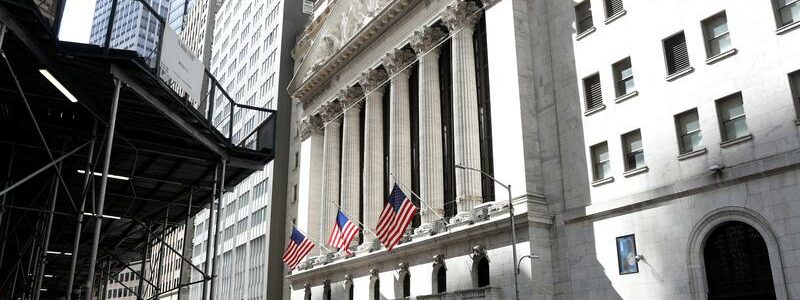
Nomura, Credit Suisse warn on losses after Archegos share dump
TOKYO/ZURICH (Reuters) – Nomura and Credit Suisse warned on Monday they were facing significant losses after a U.S. hedge fund, named by sources as Archegos Capital, defaulted on margin calls.
A fire sale of stocks on Friday caused big drops in the share prices of companies linked to Archegos, a source familiar with the matter said, putting markets on edge about the scale of the possible fallout.
Nomura said on Monday that it faced a possible $2 billion loss due to transactions with a U.S. client while Credit Suisse said a default on margin calls by a U.S.-based fund could be “highly significant and material” to its first-quarter results.
Credit Suisse said that a fund had “defaulted on margin calls” to it and other banks, meaning they were now in the process of exiting these positions.
Nomura shares closed down 16.3% while Credit Suisse shares were down 13.4% at 0855 GMT. Other bank stocks also fell, Deutsche Bank was down 5% while UBS was 3.8% lower. UBS and Deutsche Bank had no immediate comment on their stock prices or exposure to Archegos.
Nasdaq 100 futures and S&P 500 Futures were both down 0.5% in early European trade as the widening fallout of Archegos’ liquidation became clearer.
Investors said they were nervous about whether the full extent of Archegos’ apparent wipeout has been realised or whether there was more selling to come.
Related Coverage
Switzerland’s financial regulator said on Monday it was aware of the international hedge fund case and in touch with Credit Suisse about it. The Swiss regulator also said several banks and locations internationally were involved.
The Swiss National Bank declined to comment.
Shares in ViacomCBS and Discovery tumbled around 27% each on Friday, while U.S.-listed shares of China-based Baidu and Tencent Music plunged during the week, dropping as much as 33.5% and 48.5%, respectively, from Tuesday’s closing levels. Baidu was trading slightly lower in Hong Kong at the open.
Investors and analysts cited blocks of Viacom and Discovery shares being put in the market on Friday for likely exacerbating the decline in those stocks. Viacom was also downgraded by Wells Fargo on Friday.
A person at Archegos who answered the phone on Saturday declined to comment. Archegos was founded by Bill Hwang, who founded and ran Tiger Asia from 2001 to 2012, when he renamed it Archegos Capital and made it a family office, according to a page capture here of the fund’s website. Tiger Asia was a Hong Kong-based fund here that sought to profit on bets on securities in Asia.
Prior to starting Tiger Asia, Hwang was an equity analyst for Tiger Management according to Archegos’ website here. Tiger Management, run by Julian Robertson, was a hugely successful hedge fund, which returned investor money and shut here in 2000.
Hwang in 2012 settled here insider trading charges by the U.S. Securities and Exchange Commission according to a press release here at the time. He and his firms at the time agreed to pay $44 million to settle, according to the release.
The scale of the losses at banks is likely to prompt questions about the risk management of banks’ exposure to Archegos.
In Japan, Chief Cabinet Secretary Katsunobu Kato said the government would carefully monitor the situation at Nomura and that the Financial Services Agency would share information with the Bank of Japan.
For Credit Suisse this will mark the second straight quarter the bank has recorded losses on hedge fund exposure and adds to pressure on chief executive Thomas Gottstein, who is grappling with the fallout from the bank’s dealings with collapsed supply chain finance company Greensill.
Last quarter Credit Suisse booked a $450 million impairment after alternative investment firm York Capital Management, which it held a stake in, informed investors it would wind down its European hedge funds business.
VOLATILITY CONCERNS
Some market participants said last week’s wild moves were likely to make investors increasingly cautious.
“It’s insane,” said Edward Moya, senior market analyst at OANDA. “When you consider how some of these companies have skyrocketed over the last few months, there will be concerns that we are over-levered.”
Other market participants said potential unwinds would only have a limited impact on broader markets. The Nasdaq Composite and S&P 500 both surged over 1% on Friday despite the sharp selloffs in Viacom and other stocks.
“These stories around fund liquidations happen from time to time,” said Michael Antonelli, market strategist at Baird. “Some of the names where big blocks were traded on Friday might see some near-term volatility as traders wonder whether the selling is complete.”
Several banks were meant to be involved with the trade unwinds. A source familiar with the matter said on Saturday that Goldman Sachs Group Inc was involved. The Financial Times reported that Morgan Stanley sold $4 billion worth of shares early on Friday, followed by another $4 billion in the afternoon.
Bloomberg and the Financial Times on Saturday reported thatGoldman liquidated more than $10 billion worth of stocks in the block trades. An email to clients seen by Bloomberg News bloom.bg/3lYOrZm said Goldman sold$6.6 billion worth of shares of Baidu Inc, Tencent Music Entertainment Group and Vipshop Holdings Ltd, before the U.S. market opened on Friday, the Bloomberg report on Saturday said. Following this, Goldman sold $3.9 billion worth of shares inViacomCBS Inc, Discovery Inc, Farfetch Ltd, iQIYI Inc and GSX Techedu Inc, according to the report.
Source: Read Full Article